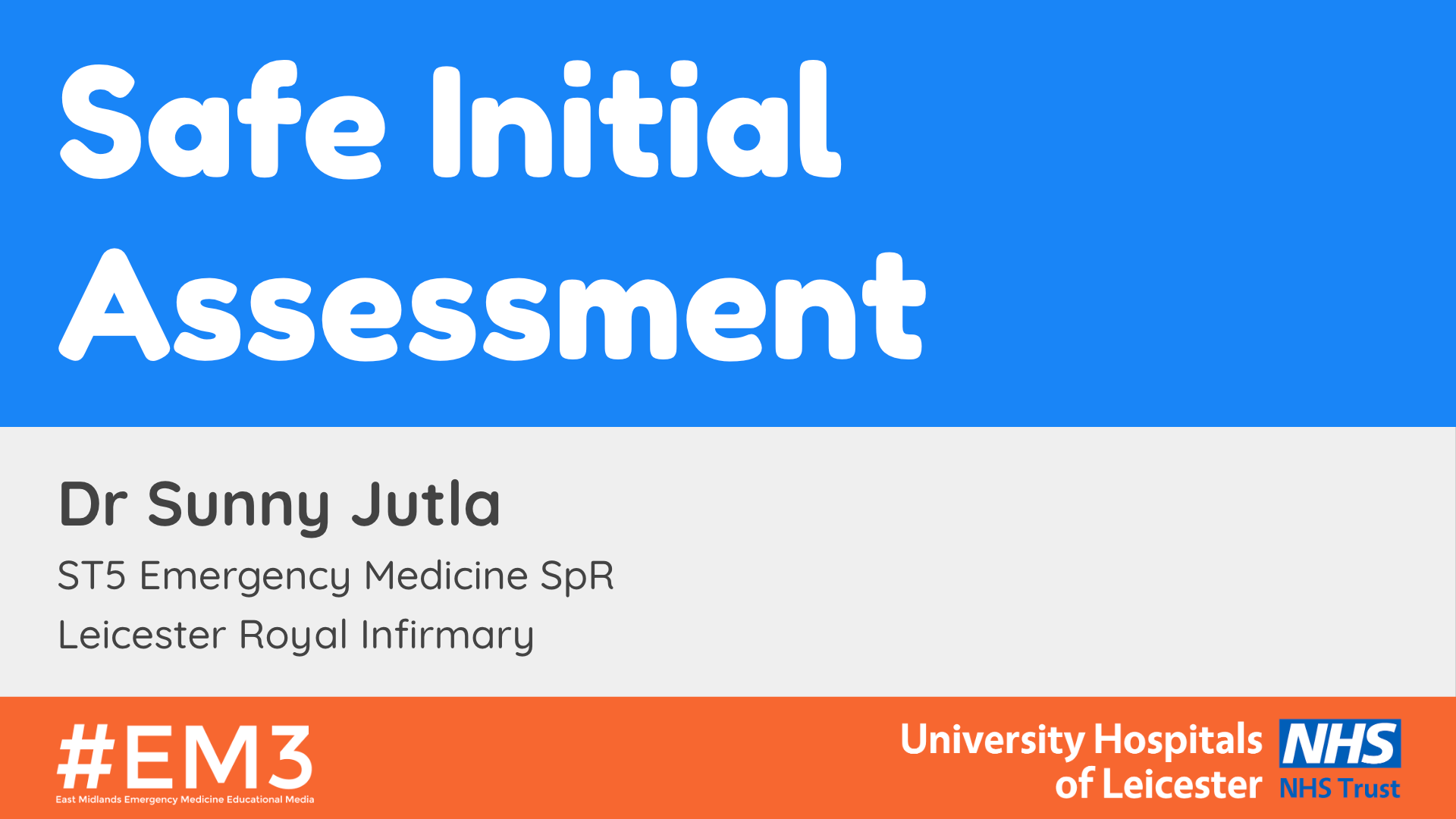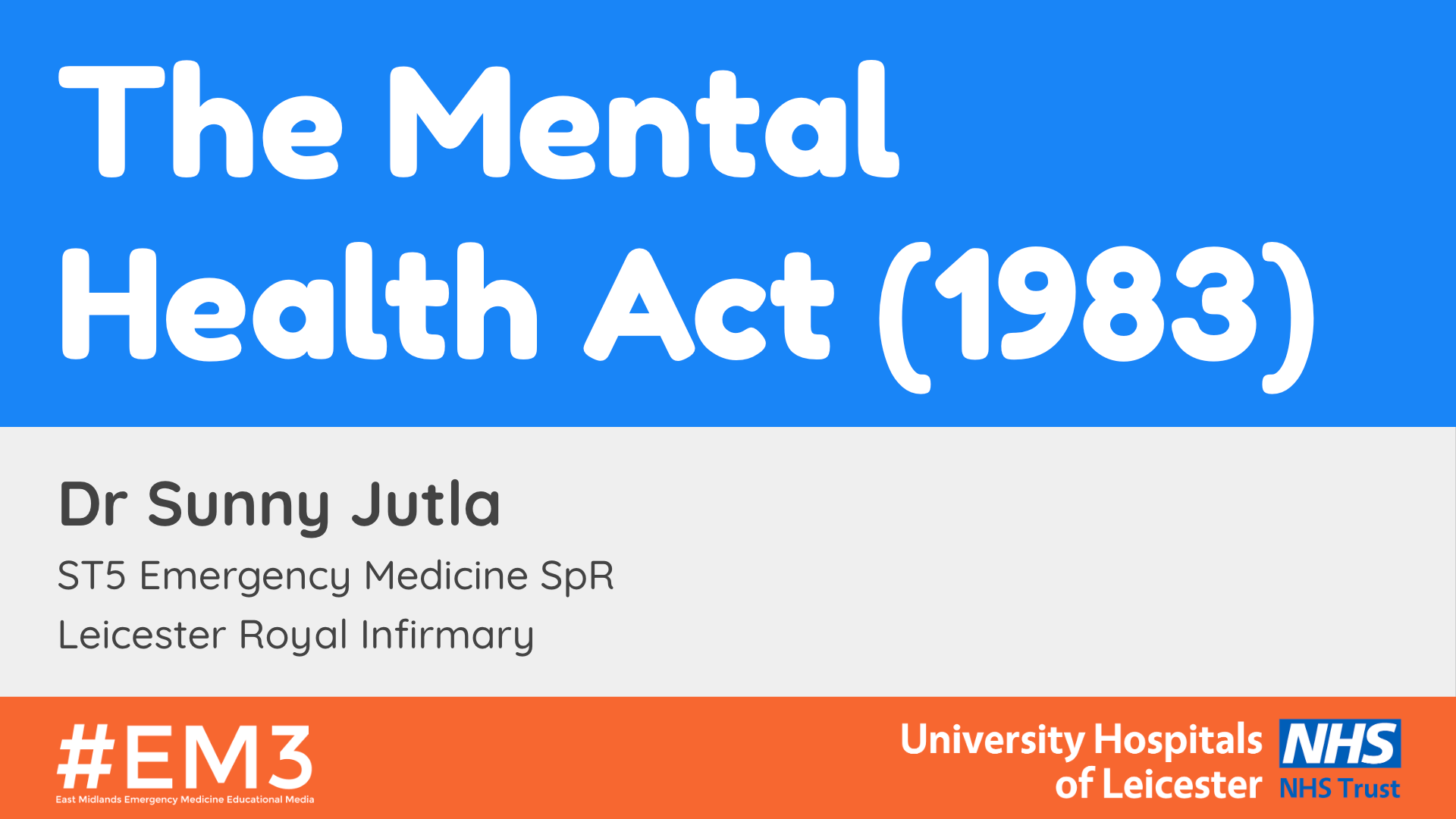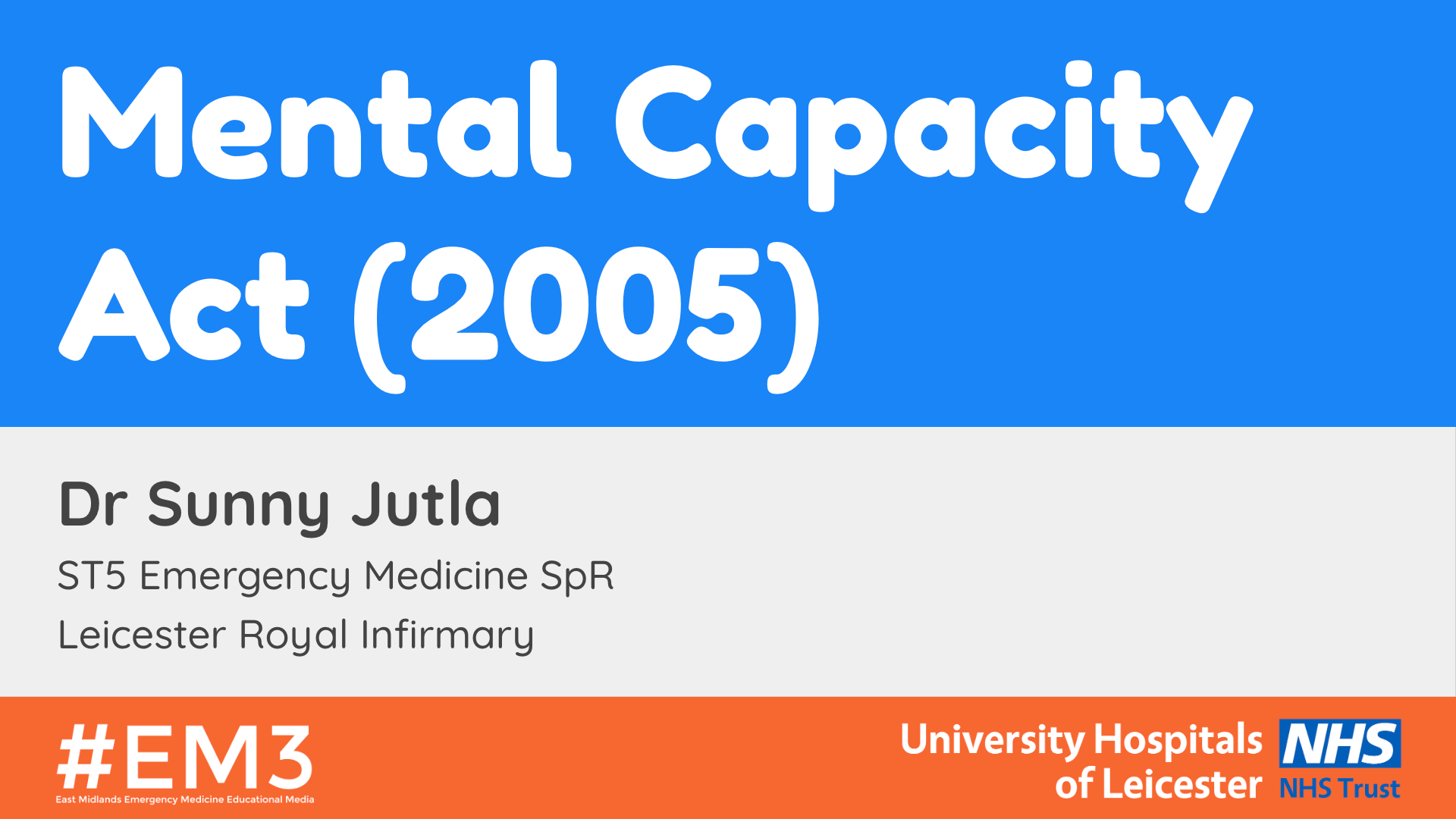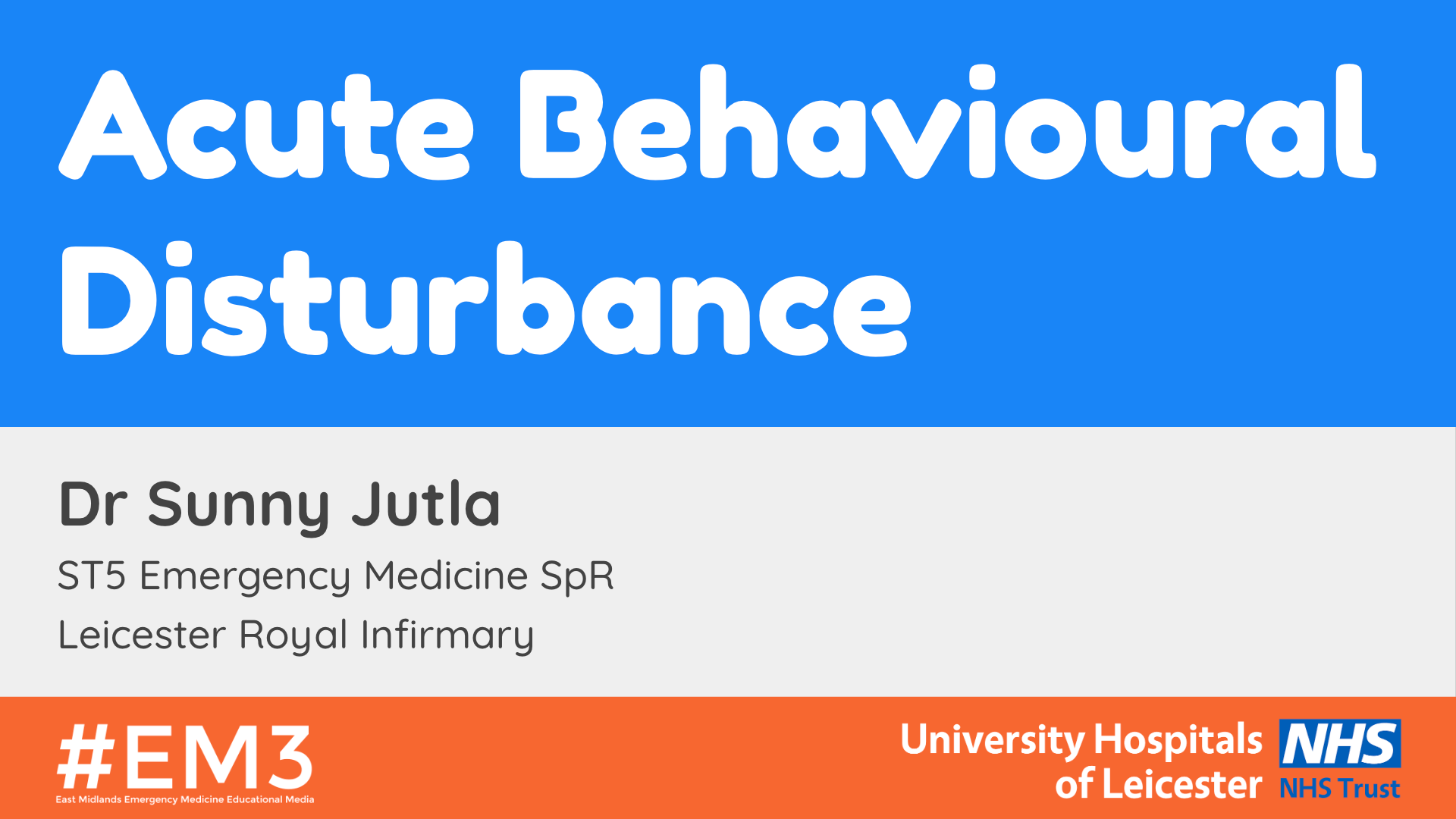Mental Health in the Emergency Department (HST Teaching + Mini Sims)
Last week we delivered our revised higher specialty training (HST) day focused on mental health-related presentations in the Emergency Department (ED). With the ever-growing pressures of COVID-19 and limitations associated with the provision of high-quality education, we took this opportunity to devise bite-sized teaching content to be made freely available to ALL health care professionals. This educational blog includes our teaching package and summarises key learning points from our enjoyable training day!
Key Learning Objectives
To apply a simple framework needed to carry out a safe initial assessment of patients presenting with MH-related conditions
Gain insight into our local “Turning Point” services
Revise the Mental Health Act and apply to cases
Revise Mental Capacity Act and apply theory within the mini-sims
Revise management of acute behavioural disturbance/psychiatric emergencies (updated RCEM 2019)
Timetable for the day
To ensure that our learners were able to successfully achieve curriculum-based competencies, we delivered core theoretical principles using slide presentations, group work exercises and interactive case discussions.
To consolidate knowledge towards the end of the day, we facilitated two “mini simulation scenarios” (capacity assessment and acute aggression) followed by detailed debrief sessions. Here is an example timetable for our HST day that you could adapt for your own training/department.
Slide Presentations
The following slide presentations include summarised theoretical content, together with QR codes and references for further reading…
We also facilitated two mini simulation scenarios to enable our learners to apply and consolidate their knowledge from earlier in the training day.
Mini-Sim #1: Patient Refusing Treatment
Patient refusing treatment → requires capacity assessment (education faculty member as patient)
Learning objectives (BEFORE):
Full capacity assessment to be performed.
Communication skills: Patient included in decision-making, focused around the patient’s wishes, beliefs and thoughts.
Appropriate sign-posting inclusive of providing leaflets and opportunity to speak to NOK/relative.
Learning points (AFTER):
Importance of comfortable body language and appropriate positioning of self during consultation (to the side instead of face on).
Realistic scenario where learners were able to apply framework for safe assessment.
Learner was able to explain treatment options clearly to patient.
Mini-Sim #2: Acute Behavioural Disturbance
Acute behavioural disturbance on background of drug and alcohol misuse → requires stepwise approach inclusive of de-escalation techniques and use of sedative agent (education faculty member as patient)
Learning objectives (BEFORE):
Consider the use of appropriate de-escalation techniques.
Move patient to safer area for further management.
Appropriate use of sedation drugs, able to have rationale for use (as per RCEM guidelines).
Learning points (AFTER):
Called for help early on.
Able to take a step-wise approach to managing the patient safely as per RCEM guidelines.
Learners were able to take an interprofessional approach to managing the situation.
Debrief
Both simulated scenarios were enjoyed by all participants, where all written feedback was anonymously gathered (some examples are shown below). Our registrars and medical students have since requested for further scenarios to be created.
“Engaging and interactive throughout”
“Realistic scenarios, especially the agitated patient!”
“Clear and concise information on slides”
“Great practical advice that I can apply to the workplace”
“Feel more confident in managing scenarios in the ED”














